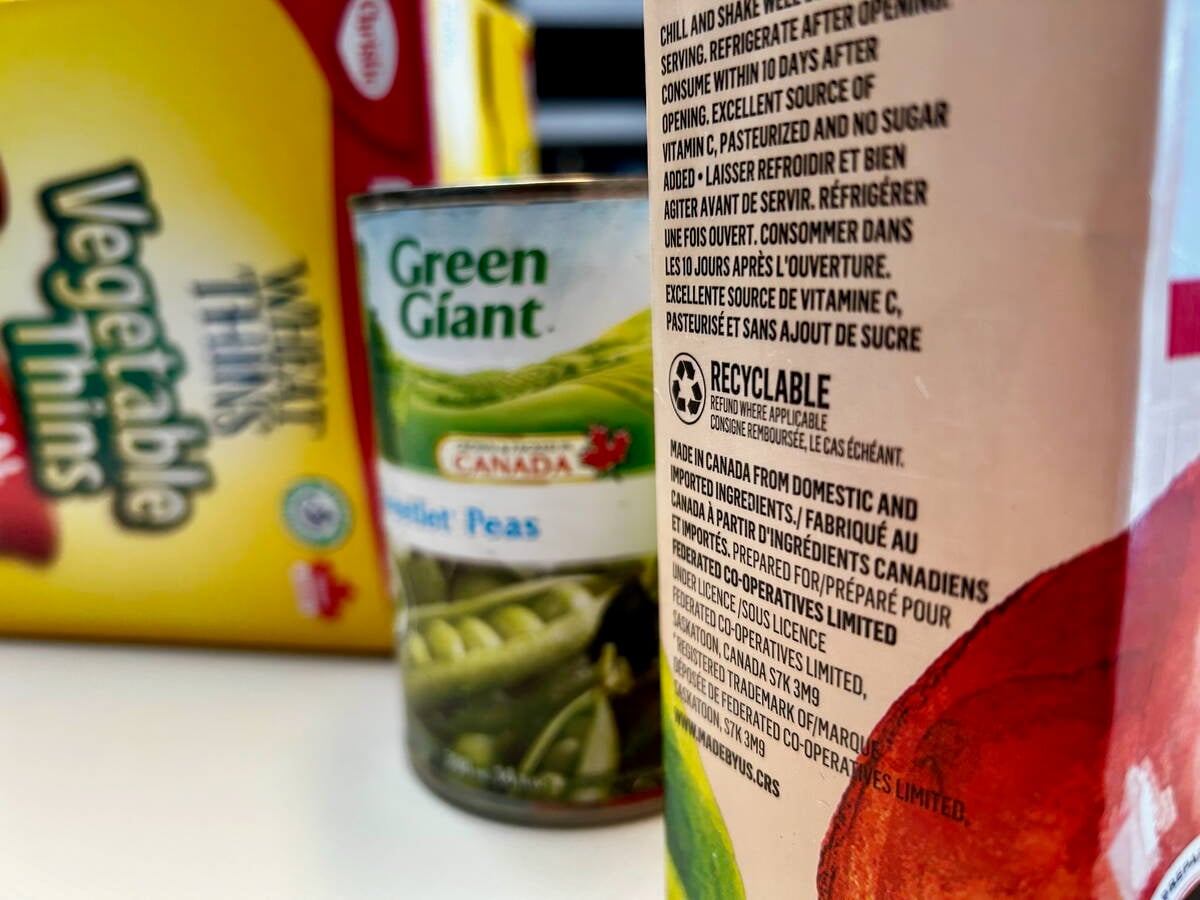A popular author and food justice advocate says GM crops are the wrong pill for the world’s food disease
The following is an excerpt from author Frances Moore Lappé’s presentation to the Borlaug Dialogues, a three-day symposium that runs in conjunction with the World Food Prize awards each year in Des Moines, Iowa. Lappé was among a handful of speakers at the event who said prescribing GM crops as a cure for global hunger is a misdiagnosis.
Lappé said the world today produces 2,800 calories for every person in it, despite the fact that only 43 per cent of what is produced goes directly to people. The rest goes to livestock, biofuels and other uses.
Read Also

Unclear food labels hinder Canada’s ‘buy local’ surge
“Maple-washing” on Canadian food packaging makes label claims hard to keep straight and hurts both farmers and consumers trying to buy Canadian, economist says.
She also questioned whether it was appropriate for the World Food Prize Foundation to single out the pioneers of genetically modified crops for recognition, because technology concentrates control of the food system. Her three recommendations for improving the World Food Prize criteria have been copied from the website: http://www.thepetitionsite.com/796/158/642/realize-the-prize/.
We know that a physician’s misdiagnosis can actually kill the patient. So what is the false diagnosis that I see?
The false diagnosis is that the problem is scarcity. It is a fear-driven message that there is not enough and we must narrow, narrow our focus more, more and more in order that we keep up this race with population growth.
Well, why does that diagnosis make us sick? This premise of scarcity is not just in nature, but it is a premise about scarcity in human capacities as well, particularly the capacities of ordinary people. We know that both are false.
We know that agro-ecology approaches have the potential to meet our needs and increase production, but we absorb this distrust of nature and of self and what we do. We go along with a power-concentrating market, driven by one rule, highest rate of return to existing wealth. Wealth and power continue to consolidate so that it hits almost unthinkable extremes in the food system, for example, three companies controlling 53 per of the global commercial seed market.
So concentrating power that is disempowering billions inevitably creates the experience of scarcity no matter how much we grow.
For me, genetically modified organisms not only fail to address hunger but they contribute to the concentration of power that is at the root of hunger.
So I think we need to see the protest over this year’s prize, it is not just about the seed, it is about the system.
The good news is an ecological, relational way of seeing life is breaking its way through. This is going to sound New Age, but it is actually new science because what is happening is virtually every field of science is converging on this simple insight: all life exists in interacting systems so there are no parts, there are only participants.
It is the quality then of relationship between all participants that really matters, not just how much quantity is produced.
For human beings, for me the surest way to measure the quality of our relationships with one another is whether they enhance dignity.
For what is dignity? It is knowing we count. It’s knowing we have a voice, it is knowing we have power, its root in Latin is capacity to act.
So systems concentrating power deny dignity and as they fail to tap our innate need to contribute and that is a huge problem, because we need all hands on deck right now. So what keeps me going is evidence from the village to global forums that we know what does work. The systems that disperse inclusive power where transparency and mutual accountability are what characterizes our place in this. Farmers all over the world are showing us that path, rejecting dependency farming. I think of it as building knowledge-based collaborative power.
We need the World Food Prize to help us break free from this failed premise. I am making three requests of the foundation that would infuse in the foundation process, what it takes to build inclusive power and transparency.
We respectfully request the foundation to take these three steps to realize the prize:
1) Continue to identify and then publicly share your understanding of root causes and root solutions. Ask of any proposed solution: Does it replace dependency and extreme power imbalances with mutuality in which those most affected have a voice?
2) Make the prize selection more inclusive and transparent. Share publicly who makes the decisions and bring into decision-making those with direct experience of hunger and those fostering democratic relationships and ecologically attuned farming.
3) Strengthen World Food Prize criteria. Ask how every candidate, scientist as well as public servant, is helping to bring to life the three conditions proven essential to human social problem solving — the continuous dispersion of power, transparency, and mutual accountability.















